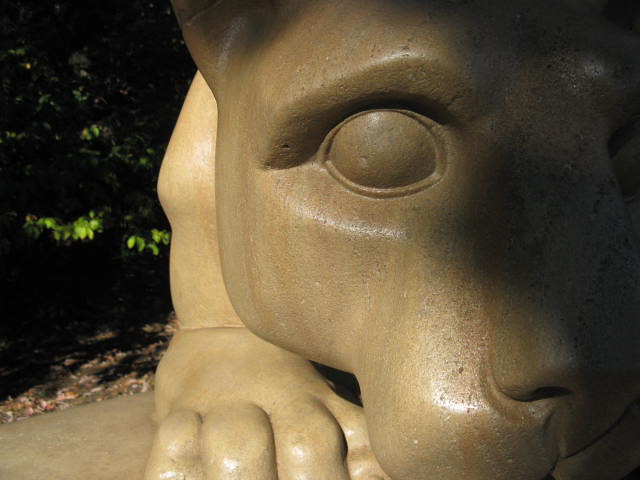When Good People Do Nothing: Thoughts On Penn State, Personal and Systemic Sin
Some people simply can’t process the horror in front of them. Some people suffer from what the psychologists call Normalcy Bias. When they find themselves in some unsettling circumstance, they shut down and pretend everything is normal.
…
People are really good at self-deception. We attend to the facts we like and suppress the ones we don’t. We inflate our own virtues and predict we will behave more nobly than we actually do. As Max H. Bazerman and Ann E. Tenbrunsel write in their book, “Blind Spots,” “When it comes time to make a decision, our thoughts are dominated by thoughts of how we want to behave; thoughts of how we should behave disappear.”
Above David Brooks discusses our remarkable ability to delude ourselves into feeling morally superior in the aftermath of a tragedy in this NYT article. Brooks is discussing the Penn State child abuse scandal, and as he states in the article, he observes how the atrocity came first followed quickly by the vanity. He remarks on how many of the indignant commentators over the past weeks were quick to posit that they would have behaved better than those involved (e.g. Joe Paterno or Mike McQuery etc.).
Conversely, I commend Brooks and Tony Jones (via Minnesota Public Radio News) for telling another side of this story. While in his article, Brooks speaks about the psychological effects of Normalcy Bias and Motivated Blindness that can keep good people from acting in the face of evil, Jones (via Professor Koehn) makes reference to the suffocating effects that bureaucratic systems have on people:
People in big, bureaucratic systems do not report unethical behavior. At a subconscious level, she said, people in those systems convince themselves that the system will root out the bad guys.
A bureaucracy cares about one thing: It’s own survival. And to survive, a bureaucracy plays tricks on the minds of the otherwise ethically sound individuals within.
Toward the end of Brooks’ article he makes mention of religion, and how in centuries past people built moral systems that acknowledged moral weakness. These systems emphasized our sinfulness and saw Life as an inner struggle against the selfish forces within. However, in our modern society which is oriented around our “inner wonderfulness,” we constantly feel the need to look for some artificial, outside force that must have caused whatever awful atrocity is before us. This of course leads to Commentators ruthlessly vilifying all involved from the island of their own innocence.
It is my conviction that as a disciple of Jesus I am compelled to not only confess my own sinful weakness, repent from it and be forgiven (as I forgive), but to also recognize that there are other forces at work in the world that enslave otherwise good, well intentioned people. And hopefully in the end, humbly and determinedly, work against these forces to establish a new commonwealth of Love. Unfortunately, this is not easy, this way of life may in fact be the most difficult way to live.
…
Photo above by this person

0 Comments